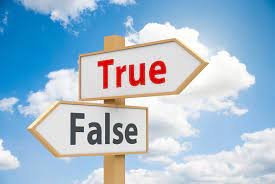“What was something you believed all through childhood, and found out was false,” my son asked.
There were many, such as:
1. A place for a woman is in the home;
2. Jews hate Muslims;
3. Arabs are primitive;
4. Blood is thicker than water;
5. Santa Claus. Those lucky Christian children;
6. Mommies go to the hospital to get a baby; or the storks, minus the birds and bees.
7. America is a nice place to visit, but not to stay.
Let’s see: I have already addressed #1 in ‘Threading My Prayer Rug,’ #2 in ‘We Refuse to be Enemies,’ and #3 in ‘It’s Not What You Think.’ If you don’t know what I am talking about, you have been missing in action. Hint: Barnes & Noble, Amazon. Moving on: #4 has a bitter taste to it, so let’s skip that; #5 and #6 are no-brainers. How about 7!
As a child, I was fascinated with America. If you didn’t know I grew up in Pakistan, you haven’t been paying attention. When Mummy showed me photos of their time in England when I was just a child, and told stories of their life there, she would end by saying, “The five years in England were wonderful, but it’s not a place to live. Life is too hard.” Then she would add: “British people are rude.”
Then Daddy went to America in 1958 for a military course and came back laden with gifts that had us wonderstruck. Mummy wore her white fur coat—synthetic, of course—on only very special occasions, the sparkling fabrics were put away in the big metal storage box for my trousseau, crystal was display high on the mantle in the drawing room, out of reach of children, and the tape-recorder was played whenever family visited, insisting that they listen to the home recordings of our chatter and songs. Daddy loved America, and every time he told a story, I was spellbound and wondered what it would be like to go there. No chance.
Somewhere in the background of the chatter I would hear:
“Americans don’t care about their children. They make them earn their pocket-money; they don’t give their children money, they loan it to them, and make them pay it back.”
“Americans are just like the British. Rude.”
“Americans are money minded.”
Then I grew up and got engaged to a doctor in America, no less. Everyone was happy, as was I, that I will be going to the dazzling America with gleaming skyscrapers and sleek long cars; but only for two years, because America is a place to visit and not a place to live. Once my fiancés residency is over, we return.
Well, I fell in love with America.
Yes, we do want our children to earn their pocket money and not take money for granted. We want them to go through the grind, know what it is like to make a living, acquire work ethic at an early age, develop team spirit, learn to deal with rejection, and grow into responsible adults. It’s because we care.
No, Americans are not rude. They are direct. They say it as they see it. You know where you stand with them. They will not say what you want to hear and then talk about you behind your back. What is considered rude through the lens of one culture, is seen as honest in another.
How about money-minded! Americans are no more concerned about their finances than anyone else, anywhere in the world, under any circumstances. The difference is that Americans are o.k. talking about it; and that creates the perception in the eyes of the beholder that they are money minded. Now mind you, in the Pakistani culture, people do not talk about money—at least not when I was a child. It was considered crude, un-gentlemanly, un-ladylike. ‘Making money,’ was not part of the lingo. Nor was: ‘I can’t afford it,’ or ‘I paid x amount for this,’ or ‘My husband got a raise.’ If you were loaded, you said nothing; if you weren’t, you stayed silent. Your wealth or lack of it was reflected in your lifestyle as in a sprawling house and lavish weddings, or the reverse. Here in the US, we have no shame in saying: ‘I got laid off,’ ‘I have to make rent,’ or gleefully share your joy as in: ‘let me show you the house. . . how about a ride in my new car . . . cost an arm and a leg.’
Our values, on both sides of the Atlantic and beyond, are the same. It’s how we express it.
I once assumed that believing comes from knowing, but I know now that what I believed during my childhood was the consequence of not knowing.
*******************************************************
Order from:
A bookstore near you
and
Amazon (hardcover) Amazon (Kindle) Bookshop.org Barnes & Noble Indiebound
Books-A-Million Target.com Walmart.com
Order here on Amazon for your:
Paperback
Kindle
Hardcover
Audio, narrated by Yours Truly
Or look for it on the shelf of your neighborhood bookstore.
As an Amazon Associate, I earn from qualifying purchases
**********************************



